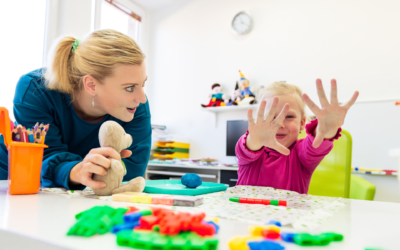
Leaving an abusive relationship is an incredibly brave and challenging decision that often comes with a heavy emotional toll. While much attention has been rightfully given to the financial implications, it’s equally vital to shed light on the emotional cost survivors endure. This post aims to explore the profound emotional struggles women may face when breaking free from an abusive relationship, emphasising the need for understanding and support.
Recognising it is abuse: One of the most crucial barriers to leaving is not recognising, understanding or accepting the situation for what it is. Denial is a powerful force that can prevent survivors from recognising the reality of their abusive relationship. The abuser may downplay or justify their behaviour, and the woman in question may believe the lies or blame themselves. This internal conflict can create cognitive dissonance, where she wants to believe that the relationship is good, even though the evidence suggests otherwise.
In her TED Talk above titled Why domestic violence victims don’t leave, Leslie Morgan Steiner paints a vivid picture of this: “Why did I stay? The answer is easy. I didn’t know he was abusing me. Even though he held those loaded guns to my head, pushed me down stairs, threatened to kill our dog, pulled the key out of the car ignition as I drove down the highway, poured coffee grinds on my head as I dressed for a job interview, I never once thought of myself as a battered wife. Instead, I was a very strong woman in love with a deeply troubled man, and I was the only person on earth who could help Conor face his demons.”
Grief and loss: Beyond ending the relationship itself, it is not surprising that some women may mourn the shattered dreams of the loving partnership they once imagined. The stark contrast between the reality of abuse and the version of the relationship that they dreamt of can be overwhelming. Coping with the loss of the life they thought they had can trigger sadness and a sense of emptiness. This can extend beyond personal grief where children are involved. Mothers often grapple with the pain of upending their children’s lives and the realisation that the envisioned family unit may never materialise.
Guilt and self-blame: Survivors often grapple with intense feelings of guilt and self-blame, a cruel aftermath of the manipulative tactics used by their abusers. The abuser’s tactics may include shifting responsibility onto the survivor, making them believe that they are the cause of the abuse. Consequently, trying to leave the relationship can trigger guilt for “abandoning” the abuser or for perceived failures in the relationship. Survivors may carry the burden of responsibility for exposing their children to the toxic environment or fear the impact the separation may have on their wellbeing. Overcoming this self-blame is crucial in the journey towards healing and for creating a healthier environment for the children.
Fear and anxiety: In her TED Talk Leslie Morgan Steiner continues, “To me, this is the saddest and most painful question that people ask, because we victims know something you usually don’t: It’s incredibly dangerous to leave an abuser. Because the final step in the domestic violence pattern is kill her.” She goes on to validate this statement with the statistic that over 70% of domestic femicides happen after the relationship has ended. Fear becomes a constant companion for women leaving an abusive relationship. The fear of retaliation from the abuser creates an atmosphere of perpetual anxiety. Concerns about the safety and wellbeing of any children they may have only amplifies the anxiety and fear of the unknown. Additionally, the prospect of being alone and facing the world without the abuser’s control can be daunting. Fear of the unknown can paralyse some women, making it challenging to take the necessary steps toward independence.
Depression and isolation: The emotional aftermath of an abusive relationship often manifests in depression and isolation. The survivor may grapple with a sense of sadness and loneliness, exacerbated by the disconnection from friends and family that often accompanies abuse. Survivors may struggle with the weight of ensuring their children’s emotional and physical wellbeing as well as theirs while rebuilding a support system to regain a sense of belonging. This is essential to overcome the isolating effects of their abusive past.
Flashbacks and PTSD: The trauma endured in an abusive relationship can haunt survivors long after they leave. Flashbacks, intrusive memories, nightmares, and heightened anxiety are common symptoms of post-traumatic stress disorder (PTSD). The scars of emotional and physical abuse can resurface unexpectedly, making it challenging for survivors to fully escape the clutches of their past.
Recognising and addressing these emotional challenges is crucial for survivors seeking to rebuild their lives. It’s essential to reach out for support from friends, family, or professionals who can provide a safe space for healing. Therapy and support groups offer valuable tools to navigate the emotional aftermath of leaving an abusive relationship.
Leaving an abusive relationship is a courageous act that demands immense strength and resilience. Understanding the emotional costs involved is the first step towards providing meaningful support to survivors. By shedding light on the grief, guilt, fear, depression, and trauma survivors face, we can foster a more compassionate and informed society that empowers individuals to break free from the chains of abuse.
To find out more about our person-centered approach to counselling and wellbeing and how we help the women we support address these emotional costs, click here.



